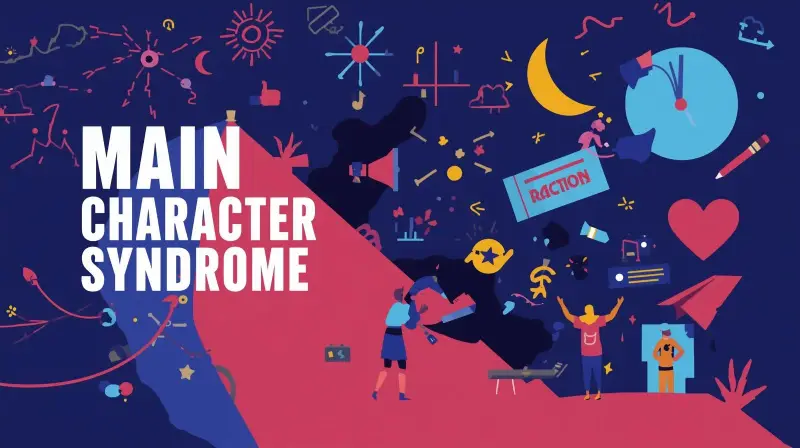Love can begin with a simple swipe or message. But that same digital ease has opened the door to a rising form of fraud: love scams. In 2024 alone, victims around the world lost billions of dollars to love scammers, criminals who use fake identities to exploit trust, affection, and emotional vulnerability.
These scams don’t rely on gullibility; they exploit human emotion. Educated, emotionally stable people fall for them because scammers use calculated tactics to build false bonds and trigger trust.
This guide breaks down how romance scams work, the psychological tricks behind them, and why even smart people get trapped, so you can recognize the signs and stay protected.
What Is a Love Scam?

A love scam, also known as a romance scam, occurs when a scammer acts as though to be romantically interested in one to gain their trust and eventually, their money. These scams can last weeks, months, or even years. Victims often report not just financial losses but also deep emotional trauma.
The Psychological Blueprint of a Love Scam

A romance scam is a form of emotional con game. It’s not a quick smash-and-grab. It’s a slow, deliberate process of grooming designed to create a powerful emotional bond. The scammer isn’t just selling you a story; they’re selling you a fantasy of a perfect partner, a soulmate who understands you completely.
Here are the key psychological tactics they use, broken down so you can see how the magic and the deception happen.
1. The Power of “Love Bombing”
Imagine meeting someone online and, within a few days, they’re calling you their soulmate. They shower you with compliments, send you long, heartfelt messages, and tell you you’re the most amazing person they’ve ever met. This isn’t a whirlwind romance; it’s a calculated tactic called “love bombing.”
The scammer’s goal is to overwhelm you with affection and attention. This creates an intense emotional high that can make you feel exceptional and valued.
Your brain releases dopamine and oxytocin, the “love hormones,” which create a powerful sense of attachment and bonding. This emotional bond happens so quickly that your rational mind can’t keep up.
You become emotionally invested before any red flags even have a chance to register. This tactic bypasses your critical thinking, replacing it with a euphoric sense of being wanted.
2. Mirroring and the Illusion of a “Perfect Match”
Scammers are digital chameleons. They spend time studying your social media profiles, your interests, your values, and even your past relationships. They then “mirror” these back to you, creating a fake persona that appears to be your perfect match.
Do you love hiking and traveling? So do they. Do you enjoy seeing obscure indie films? What a coincidence, they are too! This mirroring creates an almost eerie sense of compatibility. It makes you feel like you’ve found the one person in the world who truly understands you.
This deepens the emotional bond and instills a profound sense of trust, making it much harder to question them later on.
3. Creating a Narrative of Vulnerability
Once the emotional bond is established, the scammer begins to craft a narrative of vulnerability. They share fake sob stories and fabricated personal tragedies. They might claim they’re a widowed single parent, a successful entrepreneur facing a crisis, or a soldier stationed overseas in a dangerous area.
These stories aren’t just for show; they’re designed to elicit sympathy and empathy. When you feel empathy for someone, you are more likely to want to help them.
This tactic makes you feel like you are their only confidant and support system. It reinforces the idea that you share a special, deep connection, one built on trust and shared hardship.
4. The “No-Meet” Rule and the Art of Evasion
A hallmark of a romance scam is the perpetual “no-meet” rule. The scammer will always have a perfect, plausible excuse for why they can’t meet you in person or even video chat.
They may claim to be in the military, operating a business in a remote region of the planet, or working on an oil rig.
These excuses serve a critical purpose: they prevent you from verifying their identity. A video call would expose their real face, voice, and location. They might send you a pre-recorded video or a photo, but a live, face-to-face chat is always off-limits.
This evasion forces the relationship to exist in a digital fantasy, where the scammer has complete control over their persona and the narrative.
5. The “Crisis” and the Financial Ask
After weeks or months of grooming, the scammer’s “crisis” finally hits. This is the moment they’ve been working towards. The story will be urgent and emotionally charged, involving a sudden medical emergency, a business deal gone awry, or a legal issue.
They will express shame and embarrassment, but insist that they have no one else to turn to but you, their “soulmate.”
The initial financial ask is often small, a test to see if you will comply. They might ask for money for a plane ticket to finally meet you or for a payment to unlock a crucial asset. This tactic leverages a psychological principle called “commitment and consistency.”
Once you’ve made a small commitment, like sending a small amount of money, you are more likely to make a larger one later on to stay consistent with your previous actions. The requests grow over time, draining your savings, and sometimes even leading you to take out loans.
6. Isolation and Control
As the scam progresses, the scammer will try to isolate you from your support network. They will plant seeds of doubt about your friends and family, suggesting that they don’t understand your “special” relationship or are jealous of your happiness. This isolation is a powerful form of control.
When you’re isolated, you have no one to turn to for an outside perspective. Your friends might see the red flags, but by then, the scammer has convinced you to cut them off.
This makes you entirely dependent on the scammer for emotional validation, reinforcing the lie that they are the only person who truly cares about you.
Who Falls for Romance Scams? It’s Not Who You Think

The stereotype of a romance scam victim is often a lonely, elderly person who is not “tech-savvy.” While older adults do lose significant amounts of money to these scams, they are not the only ones who are vulnerable to them. Recent data reveals a surprising truth: anyone can be a victim.
- Loneliness and Social Isolation: Scammers prey on the universal human need for connection. People who have recently gone through a divorce, a breakup, or the death of a loved one are particularly vulnerable.
The scammer swoops in to fill that emotional void, making the victim feel seen and understood in a way they haven’t in a long time.
- The Empathetic and Trusting: People who are naturally trusting and empathetic are often prime targets. They are more likely to believe a sob story and want to help someone in a crisis. Scammers are skilled at identifying these traits and exploiting them for their benefit.
- The Highly Educated and Accomplished: You might assume that intelligence would be a shield against these scams, but it’s often the opposite.
Highly educated and successful individuals can also be susceptible. They may have less time for a traditional social life and may be overconfident in their ability to detect scams. They often assume they are too smart to be fooled, which makes them let their guard down.
- Men and Women: While statistics have historically shown that women report more romance scams, men are also victims and often report higher financial losses. Scammers target both genders with tailored approaches.
For men, the scam might involve a story about a beautiful, young woman who needs help starting a business or getting out of a difficult situation.
For women, it might be a charming, successful man who seems to be the perfect provider.
The Red Flags You Can’t Afford to Ignore

While scammers are masters of disguise, their tactics follow a pattern. Knowing these red flags is your first and best defence.
- The Relationship Moves at Warp Speed: They profess their love for you within weeks, sometimes even days. They use phrases like “soulmate” and “meant to be” very early on. Genuine relationships take time to build trust and intimacy.
- Their Story is Perfect (and Conveniently Tragic): They are a successful, attractive, and intelligent person who just happens to be in a remote place or an unusual profession (e.g., soldier, oil rig worker) that prevents them from meeting you. They have a history of bad luck and a series of “crises.”
- They Refuse to Video Call or Meet In Person: They will always have an excuse. A broken camera, a bad internet connection, a security risk, anything to avoid a real-time, face-to-face interaction.
- They Ask for Money: This is the ultimate red flag. A legitimate partner, regardless of their circumstances, will not request money for a medical emergency, travel expenses, or a business deal. Be specifically wary of requests for wire transfers, gift cards, or cryptocurrency, as these are nearly impossible to trace.
- Their Profile is Too Good to Be True: The photos look like a model or a stock image. Often, a reverse image search can show whether their photos were taken from a public website or someone else’s social media accounts.
- They Try to Isolate You: They encourage you to keep your relationship a secret and express disapproval when you discuss them with friends or family.
What to Do If You Suspect a Scam

Realizing you may be caught in a scam can be tough, but it’s also the first step toward taking control. If something feels off, act quickly. The sooner you respond, the more you can protect yourself and move forward with clarity and confidence.
- Stop All Communication: Cut off all contact with the person. Do not respond to their messages, calls, or pleas. Block them on all platforms.
- Talk to Someone You Believe: Share your concerns with someone you trust, such as a close friend or relative. An external viewpoint is essential. They can help you see the situation clearly and provide the emotional support you need.
- Adopt a “Healthy Skepticism” Mindset: When you first meet someone online, maintain a healthy level of skepticism. Don’t immediately assume the person is who they claim to be. Be wary of anyone who seems too good to be true.
- Go Slow and Set Boundaries: A legitimate relationship takes time to build. If someone is rushing you or declaring love too quickly, view it as a significant red flag. Do not send money, do not share personal financial information, and do not make a significant commitment until you have met in person.
- Check Their Identity: Do a reverse image search on their profile picture. Search their name, their claimed profession, and their location on Google and social media. Look for inconsistencies in their story. Be wary of anyone who cannot be verified.
- Never, Ever Send Money: This is the most critical rule. A legitimate person will never ask you for money for a personal emergency, a travel ticket, or any other reason. If they ask for money, it is a scam. Period.
- Listen to Your Gut (and Your Friends): If something feels off, it probably is. If your friends or family express concerns about your new online relationship, take them seriously. They may be seeing the red flags you are too emotionally invested to see.
- Report the Scammer: Report the profile to the dating app, social media platform, and local law enforcement. You can also report the scam to the FBI’s Internet Crime Complaint Center (IC3). While it may not get your money back, it can help save others from falling victim to the same scam.
- Seek Professional Help: The emotional impact of a romance scam can be profound. You may experience feelings of shame, embarrassment, anger, and grief. Speaking with a therapist or a support group can help you process these emotions & begin to heal.
Conclusion
Falling for a love scam is not a sign of weakness or intelligence. It shows the power of human passion and the predatory skills of these crooks. To fulfill your deepest longings for love and connection, they not only locate you but also craft the ideal illusion.
You can better protect yourself and those you care about by understanding the psychological strategies they employ. Be on the lookout, follow your gut, and never forget that true love doesn’t cost money. It is based on trust, honesty, and a solid foundation. Never allow your fear of loneliness to prevent you from seeing the true nature of the individuals you encounter online. Be cautious and remain safe.




